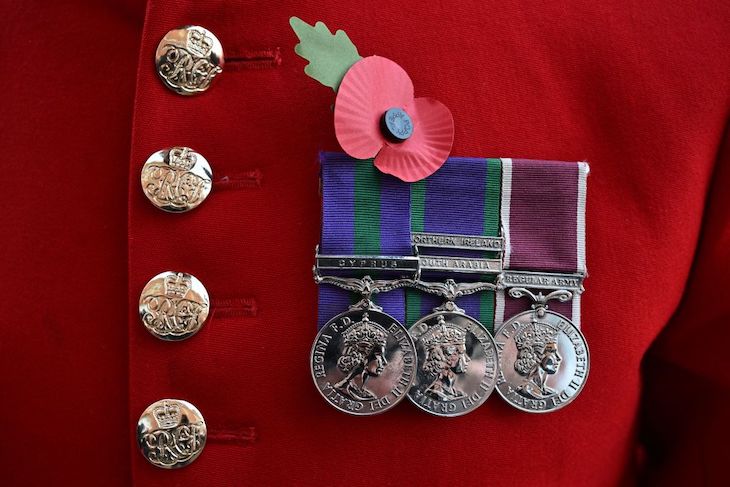The generation that fought in the First World War is gone, and the days are closing for those who served in the Second. Since I started as a doctor, one of the standard questions, to check whether people were oriented, has been to ask them the dates of World War Two. In the past few years, for the first time, I’ve met people who look outraged or indifferent, saying they couldn’t be expected to know. What was once a universal cultural possession has, for them, become trivia.
Something has happened to the way we mark Remembrance Day
The question used to yield remarkable stories, but it has been years since I met anyone for whom it brought back memories. I stand to meet no others. History moves quickly: the generation that stood for freedom is almost gone. Soon the generation that knew them – mine – will follow.
Britain is a land of war memorials, found everywhere but in the new towns. They are not garish, nor loud. Their lapidary texts, so often of young men sharing surnames, recall not only the dead but the communities, friends, and families who lived with their loss.
Paul Fussell’s wonderful The Great War and Modern Memory – one of those rare books of literary criticism that makes life feel richer – tells how the poppy came to be adopted as our symbol of war. Many of the poems in The Oxford Book of English Verse were about flowers. Men of all ranks carried that book, a common treasury, with them in the trenches, in their heads and in their knapsacks. With its blood-red colour and its transience, with its willingness to bloom in land churned and destroyed by war, it was natural that the poppy became part of their memories, and went on to become part of ours. Survive a British winter in the days before central heating, Fussell observed, and the return of spring – with its blooming plants and gradually warmer days – meant something.
Something has happened in recent years to the way we mark Remembrance Day. Our poppies have become larger, they have moved away from lapels alone. Giant ones adorn cars and trucks, lingering long after November has faded. Displays and statuary compete in scale and spectacle. Three-foot poppies line town railings like early Christmas decorations; temporary installations of the towering silhouettes of soldiers overlook our old stone memorials. Public signs of private reflection, reticent and understated, have been replaced by civic pride perilously close to bombast.
Dignity is not showy, and fervour for display is not strength of feeling. Understatement has long been part of our national character, and of how we remember the fallen. FL Lucas, who served in the trenches during the First War and at Bletchley Park in the Second, wrote The Night is Chilly but not Dark in 1935:
On nights when the moon creeps shrouded up the sky
And hedge and holt lie glimmering ghostly grey,
A voice still whispers in me, far away –
A good night, this, for wiring – and suddenly
There rises from the dead that shadowy hell,
The barbed-wire rasps, uncoiling through my hand,
The flares dance flickering over no-man’s-land,
A dull machine-gun raps from La Boisselle.
Then fades the phantom, and once more I know
Our spider-webs of wire are rust by now,
Our battlefields reconquered by the plough,
And hands that worked with mine, dust long ago.
Strange, that our public rituals grow more strident as personal memories fade. It brings to mind the words of David Niven, who, having served in the Allied invasion, said:
‘I will, however, tell you just one thing about the war, my first story and my last. I was asked by some American friends to search out the grave of their son near Bastogne. I found it where they told me I would, but it was among 27,000 others, and I told myself that here, Niven, were 27,000 reasons why you should keep your mouth shut after the war.’
There remains something deeply moving in the wreaths yearly laid beside our memorials, in the poppies worn in the street, in the two-minute pause that interrupts our normal life. The First World War changed the way we thought of conflict, and shapes the way we remember those who have fallen since.
We still fall silent to remember, in a public pause for private remembrance. Those who fought are not gone; they left us their words. Siegfried Sassoon’s Memoirs of a Fox-hunting Man; Wilfred Bion’s overlooked account of commanding a tank in 1918; Rudyard Kipling’s sentimental but devastating The Gardener: the list is long and proud. Sobering company will always be in reach – reminding us, as Niven did, that sometimes the most honourable remembrance is silence.







Comments